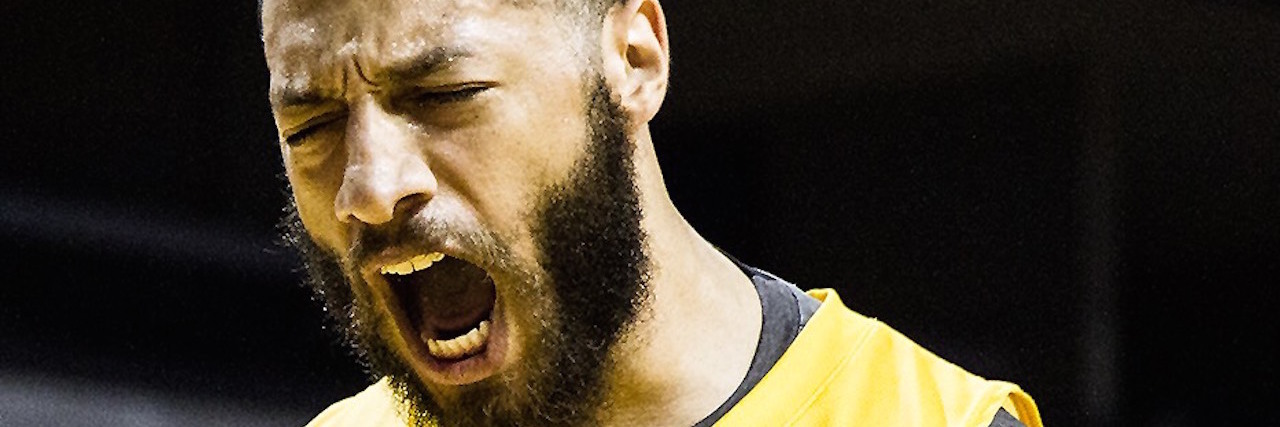My introduction to anxiety was more of a crash course. At 16 years old, a friend’s lake house, two joints, vodka and Fresca would be the catalyst of my first full-blown panic attack.
Like most people’s first panic attack, irregular breathing, heartbeat and thoughts continued to build until the nausea made me vomit. The out of body experience had fully ensued. For months afterward I would experience residual panics attacks up to three times a day. Had it not been for a school-based, family health practitioner, I wouldn’t have even known what to call this affliction. At a time where I needed answers more than ever, she taught me about the primitive parts of my brain and how they were causing these manifestations. Since the day of my diagnosis, it’s been an ongoing battle to continue understand anxiety disorder and mental health. The evolution of my understanding is starting to excite me.
I won’t want to ramble on about my symptomatic experience. Not today at least. Stories like mine are now so statistically prevalent, it’s likely many could accurately guess most of what I’ve been through symptomatically. To clarify, I do think it is important to be able to share your struggle with others, especially the most immediate people in your life. It has always helped me to be able to announce and own my struggle. So much so that I’ve chosen to do so with the entire world.
Anxiety has given me so much more than fear.
I don’t want to call it a “silver lining,” because that would imply it’s hard to see. Death and despair being the foundation of fear for the human experience is an axiom. It’s the hierarchical master for all human struggle and probably all conscious beings’ struggle. There are many ways to become intimate with despair, but not so much death. Only a near-death experience, or the death of someone close to you, can really illuminate death’s effect for an individual. I’ve found there is another way — anxiety.
In a time where the value of quality of life and life itself is seemingly getting lost in isolationism and dehumanization backed by large population analytics, the reality of death is ever important.
One of the most common testimonies of people with anxiety is the worry and even feeling of death. Over the years as I continued to find myself staring death in the face, at some point I noticed my ability and inclination to be sympathetic grew. Not just sympathetic to people with diagnosed mental health struggles. My sympathy crossed over into all common struggle. My anxiety psychologically forced me to out myself in other people’s shoes. As I continued to come into contact with more people and all their different stories, naturally, questions posed themselves in my head. “What would it be like to literally not be able to feed my children?” “What if my parent was dying?” “What if my loved one was off at war” “What if I was on a drug I couldn’t get off?” “What does it feel like to have a cop point a gun at you?” “What does it feel like to live with the dangers of being a cop?” Those are obviously toward the extreme end of the spectrum of struggle. However those struggles are very common over the course of a lifetime. Simpler struggles became more visible also.
To this day, I shutter at the idea of personally having to navigate these struggles — my anxiety gives me an immediate heavy feeling in my chest and signals to me the heaviness of the plight. The insecurity of being vulnerable and the fear it produces is second nature for those who live with anxiety. Hell, our whole lives are based on internally and externally navigating fear and trying to make ourselves invulnerable when we can, and accepting vulnerably when we can’t.
But again, isn’t that a fundamental part of everybody’s struggle?
(Side note: Because advocates have had to grind so hard just to prove these illnesses are real, I believe a part of us is scared to say every living person is dealing with this. We fear loosing the ground we’ve gained. We have heard the opposition use “commonality” as a tool to attempt to diminish validity and/or priority. Fear not, the validity and priority of mental health does not require consensus, the only way forward is through the truth.)
This journey of anxiety has brought me closer to common struggle, helped my perspective on vulnerability and increased my desire to exhibit understanding. It has made me more sympathetic. It also unveiled another axiom for me. If death, despair and fear anchor human struggle, then all struggle involves our mental health. That went off like an alarm in the dead of night. In a society where mental health resources actually continue to be decreased, and a global demographic of epic proportions fights to prove itself important, what is there actually to prove? Mental health is the way we think, feel and interact. We’re all struggling in our own way, at our own time. Struggle is the the only necessary diagnosis. Stress is the only true symptom. Support is the only equitable solution. Mental health research, education and support is quite possibly the most important tool to creating a better quality individual experience and collective society.
Maybe those of us who are stigmatized, cast out and left behind are actually leading the way.
We want to hear your story. Become a Mighty contributor here.
Image provided by Royce White

